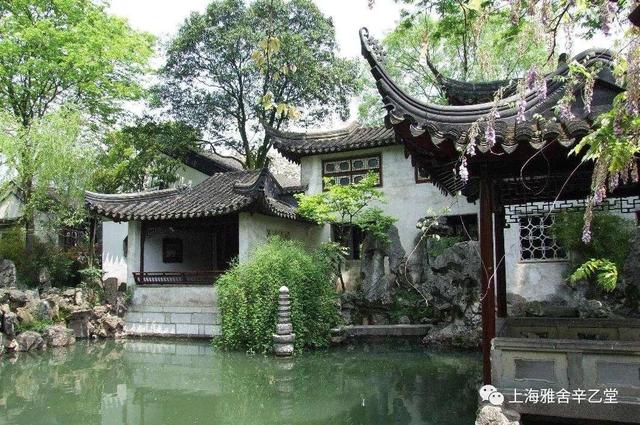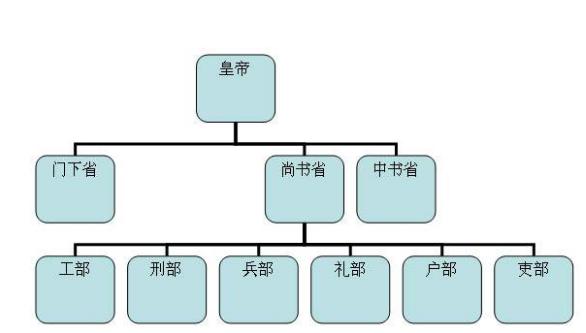本期编辑/上海雅舍辛乙堂
Yashe Studio
———————————
有人说:“中国古典建筑是门的艺术。”
Someone said: "Chinese classical architecture is the art of doors."
门在我们平时的生活中非常常见,它作为一个隔开空间的建筑,能够给人安全感,同时合理划分区域范围也可以带来社会和谐。
The door is very common in our daily life. As a building separating the space, it can give people a sense of security. At the same time, a reasonable division of the area can also bring social harmony.

门在中国已经有了很悠久的历史,早在原始社会时期人们就已经有了住在巢穴的思想,他们会用身边的材料把洞口堵住,这样一来可以躲避外界动物和其他种族的入侵,二来也为自己和他人的区域划清界限,免得因为土地问题产生纠缠。
Men have a long history in China. As early as in the primitive society, people had the idea of living in a nest. They would block the hole with materials around them, so as to avoid the invasion of foreign animals and other ethnic groups. Second, they would draw a line between their own regions and those of others, so as to avoid entanglement due to land issues.
在建筑学上认为,门既可以作为一个独立的建筑,也可以认为是房屋建筑的一部分,这样的理解也很容易让人信服。
In terms of architecture, it is believed that the door can be regarded as an independent building or a part of the building, which is also very convincing.

关于门的定义从古至今有很多不同领域给予说法,从各方面都展示出门对于人类生活的重要性以及它的重要作用。
The definition of door has been given in many different fields since ancient times, showing the importance of going out for human life and its important role in all aspects.
古代汉字中以门为偏旁的字不在少数,古人起初认为门就像闻得意思一样,所以是两个"耳朵"对着开,这才有了门呈两扇形的形状。同时,它字体本身和代表的意思基本一致,所以作为象形文字的它从商朝才逐渐被实物印证,商朝的大门就是像"门"一样建造的。此时才有了门的真正形状,随后不断发展流传下来。
In ancient Chinese characters, there are many characters with door as the side. At first, the ancients thought that the door was just like smelling, so two "ears" opened facing each other, which gave the door the shape of two leaves.
At the same time, the font itself is basically consistent with the meaning represented, so as a hieroglyph, it was gradually verified by objects from the Shang Dynasty, and the gate of the Shang Dynasty was built like a "gate". At this time, the real shape of the door came into being, and then it continued to develop and pass down.

门是一个有实际功能的物品,它用于隔开两个空间或者区域,同时还便于人们出入。它所带来的便利是无法预估的,假如世界上没有门,那么空间之间是没有隔开的东西,或者被完全隔开了,没办法通信。可见门的意义并不是表面上那么简单。在古代很多寓言故事和典故中也经常给门确定一个特殊的含义。
A door is an object with practical functions. It is used to separate two spaces or areas, and it is also convenient for people to enter and exit. The convenience it brings is unpredictable. If there is no door in the world, then there is no separation between spaces, or they are completely separated, and there is no way to communicate.
"门当户对"门当户对就是说两个年轻人的结合要家世背景都差不多才可以,不然差距悬殊太大会造成未来的隔阂或者经济、文化方面的差异。这里的门就是权贵和地位的象征。而到了"午门"人们就只会想到是斩首的地方,午门是皇家的一道门,由于历代斩首都是在午门,电视剧中也常常说"午门斩首",所以人们就把"午门"作为一种特殊的含义记录了下来。
"Door to door" means that the combination of two young people should have the same family background, otherwise the gap will lead to future estrangement or economic and cultural differences. The door here is a symbol of power and status. At the "Meridian Gate", people would only think of the place where the head was beheaded...

门本身没有什么特殊的意义,只是在特定的场合,人们根据地点的不同而对它有了幻想和定义,比如在普通的家庭中,房间的门是用于隔开生活区和休息区。这时候的房门就有了温馨、舒适的感觉。厨房门是为了隔开油烟,所以人们看到厨房门就会想起雾气腾腾、油腻腻的景象。这样的情况在古时候社会也时有发生。
The door itself has no special significance, but on specific occasions, people have fantasies and definitions about it according to different locations. For example, in ordinary families, the door of the room is used to separate the living area and the rest area. At this time, the door has a warm and comfortable feeling...
寺庙是一个比较庄严的地点,前来烧香的人们大多是为了求一个好的前程或者身体,人们保持着对神灵的敬畏,所以一走进寺庙的大门就会让人觉得庄重、肃然起敬。与之相似的还有国家的城门,城门是为了隔开自己和邻国的地界,一来到这个国家的城门,就会因为国家昌盛与否、国君是否仁慈而产生心理方面的情绪,或害怕或喜悦。这些都不是一个简单的门能够做到的。
The temple is a solemn place. Most people come to burn incense for a good future or good health. People keep in awe of the gods, so once they enter the temple gate, they will feel solemn and respectful. Similarly, there is the city gate of a country. The city gate is designed to separate itself from neighboring countries...

门的修建和很多因素都息息相关,基本代表了主人在那个时期的地位和财富,于是门的作用和地位又有了新的理解。
The construction of the gate is closely related to many factors, which basically represents the status and wealth of the owner in that period, so the role and status of the gate have a new understanding.
在富商地主家里,门是最重要的一个建筑,所谓"门面"就已经说明了这一点,从数量上来分析,地主家的房子自然房间数量上超过了普通人,根据历史记载,在先秦时期的平原君家里一般都有一千多个宾客,这么多人住在家里没有合适的房间可不行,所以平原君家里还有很多高楼,千百间门户。这样才能容纳下所有的宾客在此居住和游玩,这完全不是个例,在古代很多富商家里都是如此。
In the houses of rich merchants and landlords, the door is the most important building, which is illustrated by the so-called "facade". From the quantitative analysis, the number of natural rooms in the landlords' houses is more than that of ordinary people...

打个比方,像徽商。徽商刚开始的地位不高,因为大家都是小农经济,要么当地主,要么当农民,对于商人是非常鄙视的。但是时代是不断进步的,人们逐渐意识到商业发展对于经济的巨大利益,于是商人的地位逐渐提高,有了地位的徽商自然钱财也跟着来了。
Take an analogy, like Huizhou merchants. At the beginning, Huizhou merchants were not in a high position, because everyone was a small-scale peasant economy. They were either landlords or farmers, and they despised merchants very much...
他们开始用比较华丽的东西装饰自己家的门。商人本身对于物品就比较敏感,所以他们用的砖块都是上乘的。经过专业的雕刻家制作出来的木雕、砖雕、石雕,看上去就雄伟磅礴。
They began to decorate their doors with more ornate things. Businessmen themselves are sensitive to goods, so the bricks they use are superior. Wood, brick and stone carvings made by professional sculptors look magnificent.

门这一方面皇帝也非常看重,他把门用所开的门洞来区别等级,自己的门(都城城门)可以开三个门洞供人出入,每个门洞都代表着一个阶级,不能随意从别的门洞出来。州城的城门只能开两个门洞,依次类推,地位越低开的门洞越少。
On the one hand, the emperor also attached great importance to the door. He used the door opening to distinguish between different levels. His own door (the capital city gate) can open three doors for people to enter and exit. Each door opening represents a class, and can't come out of other doors at will...
其次在楼层、尺寸甚至颜色上都有硬性规定,都城的门绝对要最豪华的,材料都是上乘品,它不再是一个普通的、供人行走的门。而代表着皇帝的尊严和皇室的权威,任何人建造的门只要比皇宫的还气派,那就是大不敬,有逆反心理。
Secondly, there are rigid regulations on the floor, size and even color. The door of the capital must be the most luxurious, and the materials are superior. It is no longer an ordinary door for people to walk. It represents the dignity of the emperor and the authority of the royal family. As long as the door built by anyone is more dignified than the palace, it is disrespectful and rebellious.

同理,那些低于皇帝的诸侯和贵族们在等级上也有着细小的差异。这些都可以从门的建造和装饰上看得出来。古时候贵族或者亲王大多会住在四合院,四合院的门有专门的等级秩序,比如分为王府大门、金柱大门、蛮子门等,他们都有着不一样的地位象征。这时候的门象征着主人的社会地位和政治地位,颜色、材质、规模等都成了确定地位的手段。门户观念也正是从此时开始的。
Similarly, those princes and nobles who were lower than the emperor also had small differences in rank. These can be seen from the construction and decoration of the door. In ancient times, most nobles or princes lived in quadrangles.
阀字是门中有伐,这也和门有关,所谓门阀就是一户人家的政治地位和经济权力。可以看出作为建筑物的门已经是人们门阀观念的源头。古时候婚姻都是父母和媒婆说了算,他们首先看重的就是门第,如果一个媒婆想把穷小子和富家姑娘说媒,那可是要遭人白眼和笑话的,门当户对是古时候对于姻缘最基础的要求,当然也是决定性要求,基本通过了门当户对这一关就可以定亲了。
The word "valve" means that there are wars in the door, which is also related to the door. The so-called "valve" refers to the political status and economic power of a family. It can be seen that the door as a building has been the source of people's concept of doormanship. In ancient times, marriage was the final say of parents and matchmakers.

门第、门阀、门当户对,这些有关家庭地位和尊严的字眼都有了门陪衬,这也正印证了前文中说到的门有代表地位的作用。当然,除了身份的象征,统治者这么在意门修建规模和颜色的制度也是在维护自己的统治秩序,礼乐制度一直都是中国古代最为看重的,从商周时期就一直被承袭。礼乐观念深深扎根在每一个人心中,成为维护社会秩序和密切关系的纽带。
The words of family status and dignity, such as family status, family status and family status, are all accompanied by family status, which also confirms the role of the door in representing the status mentioned above...
即使是在皇宫中,那些妃子和皇帝的房间及门墙也都是有差别的,它充分包含了封建社会的等级观念和礼制思想,是传统文化和思想的一种传承。门也可以给人安全感,把人居住的地方和外界隔开。但是有保持着通畅的联系,人与人之间如果没有门来间隔是不行的,会有安全隐患,但是如果直接密封起来也会影响到人际交往,所以门的重要性在这里就可以体现了。
Even in the imperial palace, there are differences between those imperial concubines and the emperor's rooms and door walls, which fully contain the feudal society's hierarchy concept and etiquette thought, and is a kind of inheritance of traditional culture and thought.






